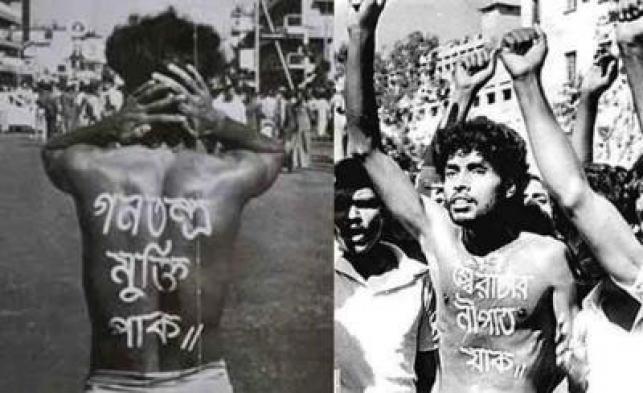The family of Language Movement martyr Abul Barkat says they are not regularly getting a monthly grant promised by the government in 2006.
Alauddin alleged the family has not got the grant for the last six months.
 “Money is not the main issue. Language martyrs require full recognition and dignity,” he said.
“Money is not the main issue. Language martyrs require full recognition and dignity,” he said.
Alauddin also demanded that all the martyrs of the 1952 Language Movement be given Independence Award.
Authorities have also not acted on suggestions that important establishments and roads in six city corporations be named after these martyrs.
Since 2001, a fair takes place for a week at Behrampore in West Bengal’s Murshidabad district, where Barkat was born. It starts on 20 Feb every year.
Alauddin said their family moved to Bangladesh after Barkat was killed. They have been living at Chandona in Gazipur since 1968.
Barkat took his Entrance examinations in 1945 and completed his higher secondary examinations in 1947 from Krishnonath College at Behrampore.
Barkat came to Dhaka in 1948 to live with his uncle Abdul Malek living at Vishnu Priya Bhaban in Paltan. He graduated with honours in Political Science from the Dhaka University in 1951.

On Feb 21, 1952, he joined the rally of Rashtrobhasha Karmi Parishad at Amtola in front of the Dhaka Medical College hostel to uphold the language rights of Bengalis.
The rally was followed by a procession that broke section 144 imposed by the government and a clash between police and protesters erupted. Barkat was shot when police fired to control the situation.
Barkat passed away at Dhaka Medical College the same night.
Abul Barkat was given Ekushey Padak in 2000. The Dhaka University authorities are setting up a museum near Polashi intersection in his honour.
Saucers, cups, watches, letters written by the martyrs, documentary films on the movement, the Ekushey Padak and photographs of the martyr have been preserved at the museum.
The museum houses a library on the first floor. Over 300 books are available there but it mostly remains closed, except in February.
Source: bdnews24








